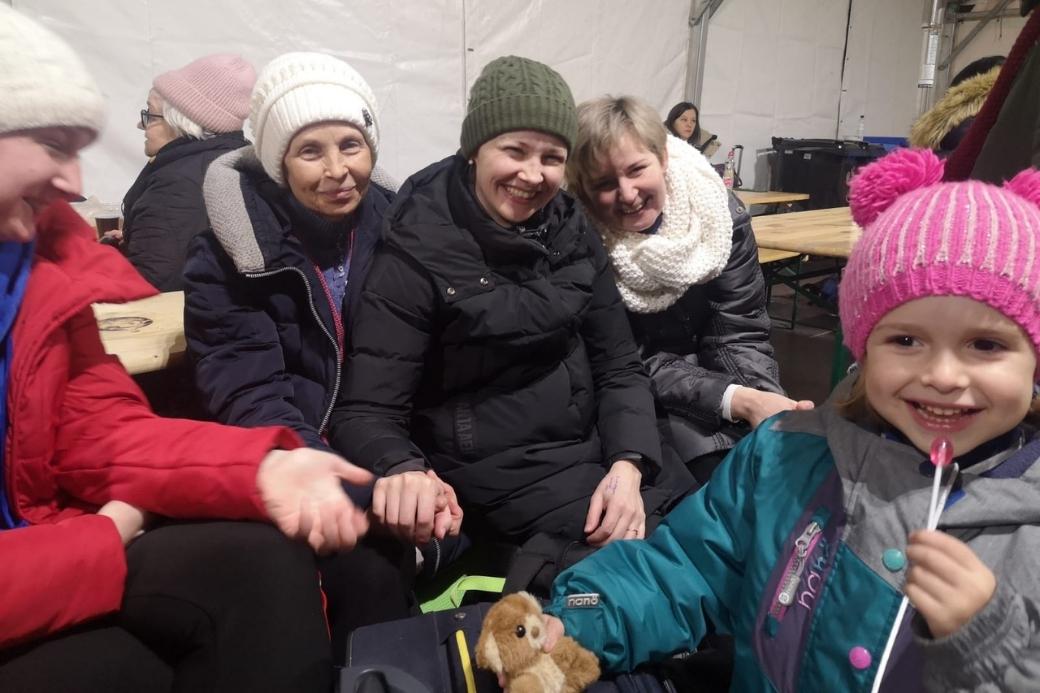Záhony – a small Hungarian town two kilometres from the border with Ukraine – has become the place where, for thousands of refugees, fear gives way to hope. You can read it in their faces, which finally relax and at least for a moment light up with a smile. A smile full of the joy of being safe, but with the bitter aftertaste of worry for their loved ones left in Ukraine, for their homes and cities.
Every day about 5,000 refugees arrive here – on foot or by train – half of whom are children and adolescents. For many of them, the journey has been long and dangerous. After days locked up in bunkers, without food, water or medicines, they found themselves in the middle of the night.
Thousands arrive every day, on foot and by train, after tiring journeys and lived with the constant danger of being attacked by fighters. The mothers bring with them only small luggage and backpacks with toys for their children. You can see the determination in their eyes as they try not to cry to avoid looking fragile in front of their children, who despite the situation manage to smile and find moments to play.
The first place they encounter in the city is Cesvi’s Entry Point Hub – created in collaboration with the municipality of Záhony and World Central Kitchen and thanks to the support of Fastweb – which has become an essential space for the first reception of all those people who have nothing left. In Záhony the cold is bitter and the heated tent allows them to refresh themselves with water, meals and hot drinks that Cesvi’s more than 50 volunteers tirelessly distribute 24 hours a day. Here, refugees can also recharge their phones, which have been discharged after their journey and are an essential means of keeping in touch with their loved ones and updating themselves on what is happening in Ukraine. For all those who will continue their journey, Cesvi also provides all the information needed to organize transportation to other cities.
Among those who are ready to leave, we meet Maryna, a young girl of 16, who fled from a small village near Kyiv with her grandmother and brother. For them, the journey has not been easy. The fighting around the Ukrainian capital grew in intensity day by day and it was now too risky for them to stay, as their father and Maryna’s boyfriend did. “I am very grateful to those like you who are giving us comfort: a hot meal, a Wi-Fi connection. Right now, they mean everything to us,” Maryna says over hot soup. “Now we will go to Budapest and then to Bucharest. From there we will reach my relatives who are waiting for us, but I hope to be able to return home soon.”
